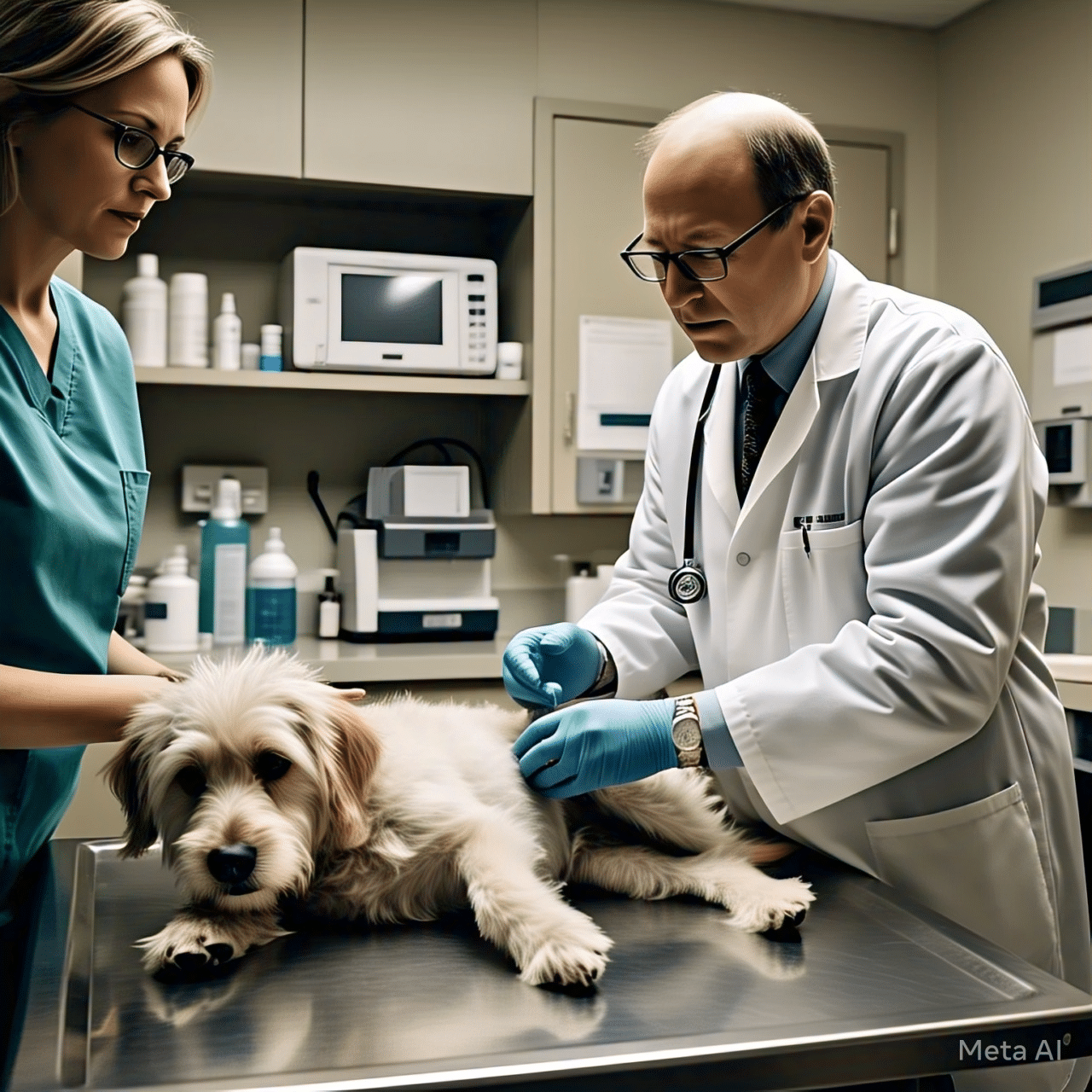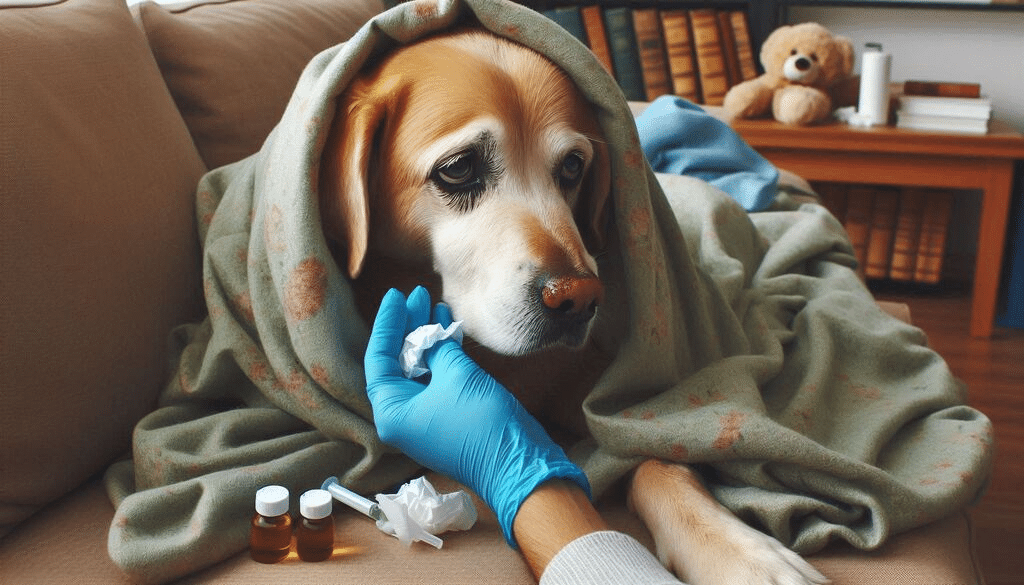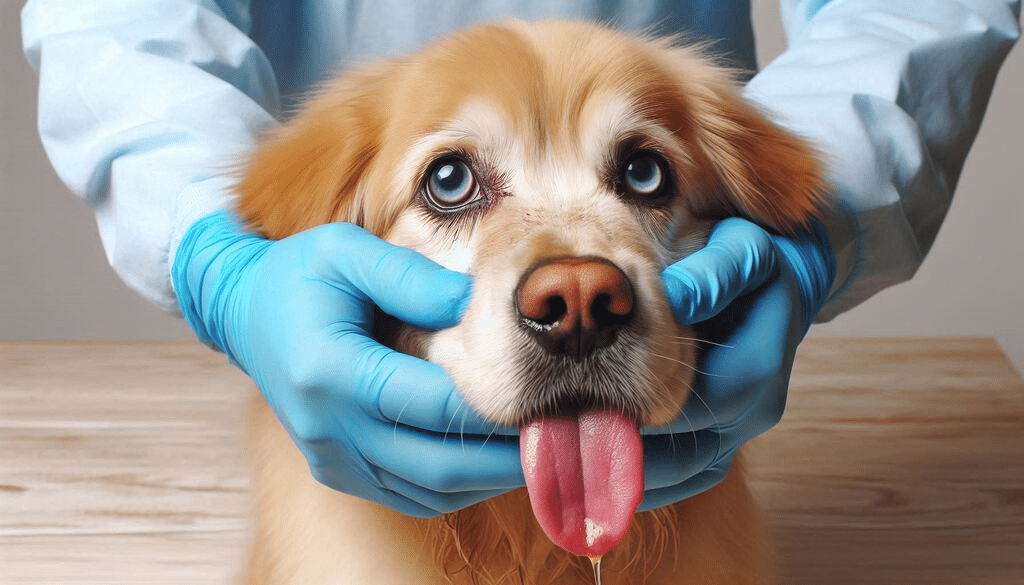At The Dog House Pet Salon, we know that vaccinations are a crucial part of your dog’s healthcare routine, protecting them from severe and life-threatening diseases. However, like any medical treatment, vaccines can sometimes cause side effects. While most vaccine reactions in dogs are mild and temporary, some can be more serious and require immediate veterinary attention.
Understanding potential vaccine reactions in dogs, their symptoms, and how to manage them will help you ensure your pet stays safe while receiving essential immunizations.
A vaccine reaction occurs when a dog’s immune system responds negatively to a vaccination. According to the American Animal Hospital Association (AAHA), all dogs should receive core vaccinations unless a medical condition prevents it.
Vaccines introduce a modified or inactivated microorganism into the body, prompting the immune system to recognize and combat potential infections. While this process is generally beneficial, it can sometimes lead to unintended side effects. Most reactions are mild, but in rare cases, they can be more severe and require veterinary intervention.
Vaccines work by stimulating the immune system to develop protection against diseases. This process, though generally safe, can sometimes lead to an overreaction from the immune system, resulting in side effects.
Factors such as age, size, and pre-existing health conditions may increase the likelihood of a reaction. Puppies and small-breed dogs, for instance, are often more susceptible to vaccine-related side effects.
Certain vaccines, such as those for rabies and leptospirosis, are known to be more reactive than others. Additionally, when multiple vaccines are administered simultaneously, the chances of an adverse reaction can increase.
Dogs with immune disorders or allergies may also experience heightened sensitivity to vaccinations.
Certain vaccines are more commonly associated with reactions. A 2005 study involving over one million dogs found that small-breed dogs and young puppies are at a slightly higher risk for adverse effects. Some of the vaccines most commonly linked to reactions include:
While vaccines are critical for disease prevention, some dogs may experience mild to moderate side effects from these immunizations. Discussing your dog’s risk factors with your veterinarian can help determine the best vaccination strategy.

Most dogs tolerate vaccinations well, but like humans, they can sometimes experience mild, short-term side effects. These reactions are usually a sign that the dog’s immune system is working and building protection against the disease. It’s important to be aware of these common reactions so you know what to expect and when to contact your veterinarian. Here’s a breakdown:
For vaccines administered through the nose (intranasally), such as some Bordetella vaccines:
Understanding the common mild vaccine reactions helps you stay prepared and ensure your dog’s vaccination experience is as smooth and stress-free as possible. Remember, vaccinations are a vital part of protecting your dog’s health, and the benefits far outweigh the risks of mild, temporary side effects.

Though rare, severe vaccine reactions require immediate veterinary attention. Symptoms such as persistent vomiting or diarrhea, swelling of the face or muzzle, and difficulty breathing could indicate a severe allergic response.
Hives and excessive itching may also signal an adverse reaction, while extreme cases can result in anaphylaxis, a life-threatening condition that causes sudden collapse. These severe reactions typically develop within minutes to hours after vaccination, making it essential to seek emergency veterinary care if they occur.
Reducing vaccine-related risks starts with careful planning. If a dog has had a previous vaccine reaction, the veterinarian may suggest pre-medicating with antihistamines or administering vaccines individually instead of combining multiple shots in one visit.
For high-risk dogs, spacing out vaccinations over a few weeks can help reduce adverse reactions. Additionally, monitoring your pet for a few hours post-vaccination allows for early intervention if symptoms arise. Titer testing, which measures existing immunity levels, may be an alternative to unnecessary booster shots for some dogs.
For mild reactions, home care is often sufficient. Allowing your dog to rest and providing plenty of water can help speed recovery. If localized swelling occurs, a cold compress can ease discomfort.
However, if symptoms persist or worsen, a veterinarian may prescribe antihistamines, steroids, or intravenous fluids to manage the reaction. In severe cases of anaphylaxis, immediate administration of epinephrine is necessary, followed by close monitoring at a veterinary clinic.
If your dog has previously experienced a vaccine reaction, informing your veterinarian is crucial. Some breeds, particularly small dogs and Boxers, have a genetic predisposition to vaccine sensitivity. In such cases, veterinarians may recommend administering one vaccine per visit rather than multiple shots at once.
Additionally, spacing vaccines at least two weeks apart allows for better observation of potential adverse reactions. Despite these precautions, vaccines remain overwhelmingly safe, and the benefits far outweigh the risks.

The most common vaccine reactions in dogs are mild and short-lived. They include:
Lethargy: Your dog may be less energetic than usual for a day or two.
Soreness or swelling at the injection site: The area where the vaccine was given may be a little tender or swollen.
Mild fever: Your dog may feel warm to the touch.
Decreased appetite: Your dog may not be as interested in food as usual.
Most vaccine reactions occur within a few hours of the vaccination. However, some reactions, such as mild lethargy or soreness at the injection site, may not appear until a day or two later.
Vaccine toxicity in dogs is rare, but it can occur. Symptoms of vaccine toxicity include:
If your dog experiences any of these symptoms after vaccination, seek veterinary care immediately.
All dog vaccines can cause side effects, but some vaccines are more likely to cause side effects than others. The vaccines that are most likely to cause side effects include:
It is important to note that the vast majority of dogs that are vaccinated do not experience any side effects. The benefits of vaccination far outweigh the risks of side effects.
Vaccinations play a vital role in preventing serious diseases and keeping dogs healthy. While vaccine reactions in dogs can occur, they are typically mild and temporary. Understanding the signs of an adverse reaction and knowing when to seek veterinary care can help ensure your pet’s safety.
You can develop a vaccination plan tailored to your dog’s unique needs, balancing disease prevention with minimized risks by working closely with your veterinarian. Staying informed and proactive is the key to safeguarding your furry friend’s health for years to come.
Book your dog’s boarding today! Contact us to confirm vaccine requirements and reserve their spot. Learn more about our Doggy Daycare and dog boarding services. Find more pet health info at NuVet Labs here.
The team and staff here at The Dog House Pet Salon continue to closely monitor and comply with both local and state regulations with sanitation standards during the COVID-19 outbreak. Our customer’s health continues to be our highest priority, especially during this time.
Copyright Ⓒ 2025 The Dog House PS. All rights reserved.
7:00 am – 7:00 pm
7:00 am – 7:00 pm
7:00 am – 7:00 pm
7:00 am – 7:00 pm
7:00 am – 7:00 pm
8:00 am – 6:00 pm
Closed
**Sunday boarding drop off & pick up from 8am-9am or 4pm-5pm only**
** Normal business closed. Pet Boarding Pick-Up & Drop Off Only**
7:00 am – 6:00 pm
7:00 am – 6:00 pm
7:00 am – 6:00 pm
7:00 am – 6:00 pm
7:00 am – 6:00 pm
8:00 am – 6:00 pm
Closed
Closed
4:00 pm – 5:00 pm
Closed
4:00 pm – 5:00 pm
Closed
4:00 pm – 5:00 pm
Closed
4:00 pm – 5:00 pm